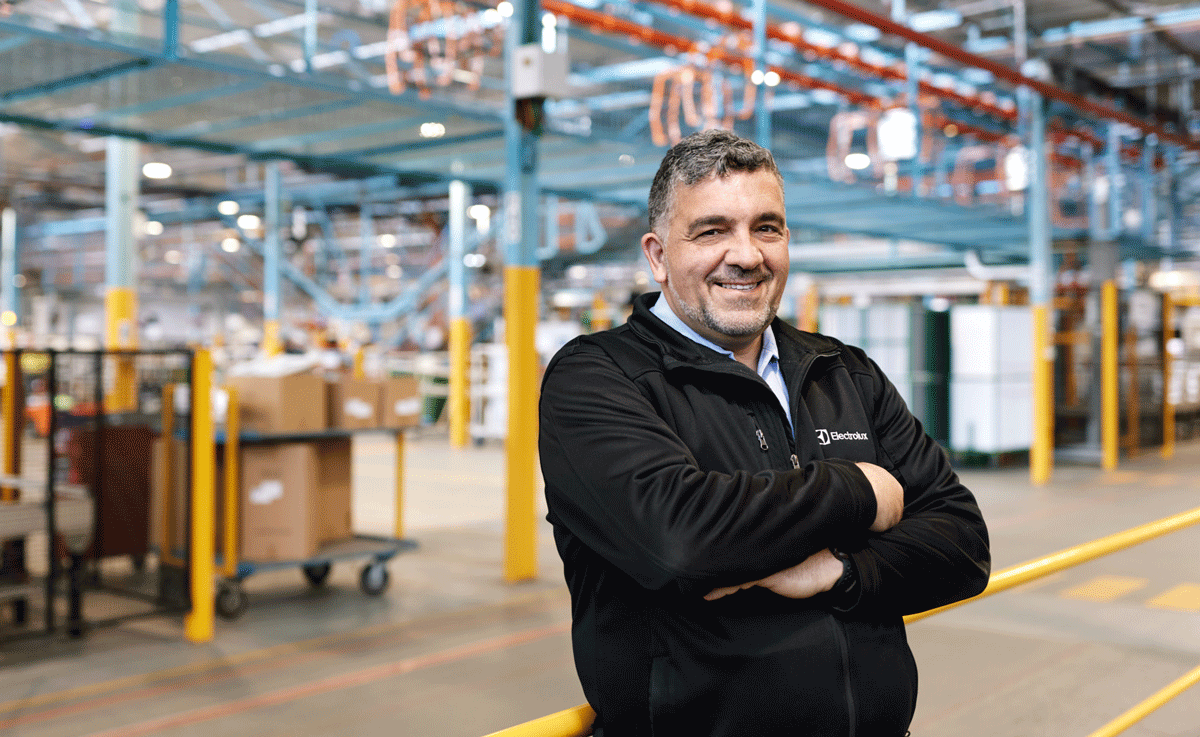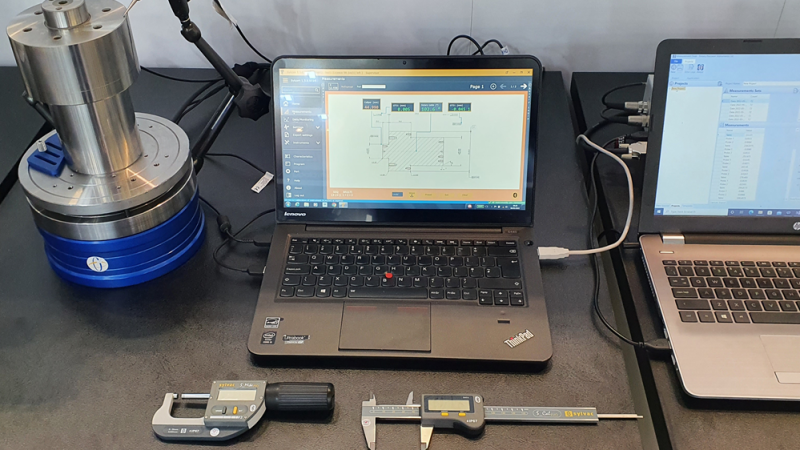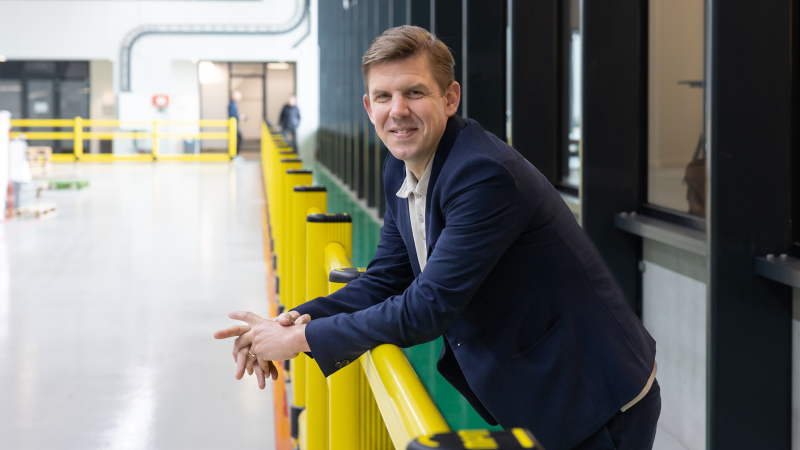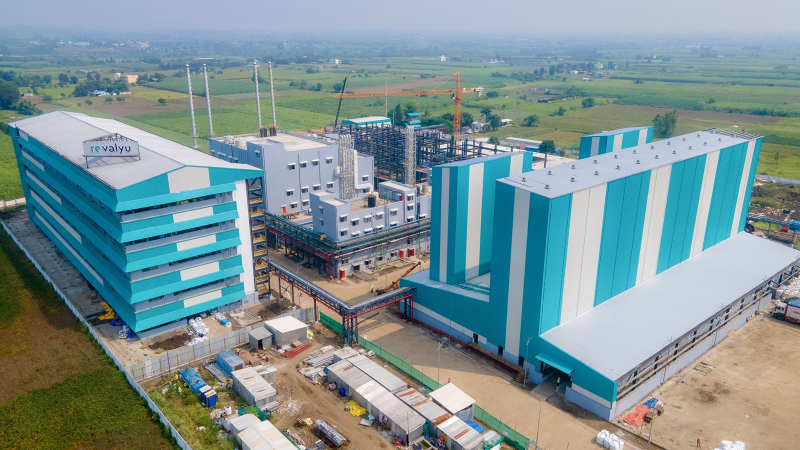There has been a manufacturing site at Dudley Park, Adelaide for over a century, and the Electrolux Group has been making its products here since 2002, creating a production line for the 21st century.
“We are a modern manufacturing site with a focus on automation, innovation and cutting-edge technology,” says Phillip Saloniklis, Manufacturing Head – Food Preparation & GM Adelaide for the Electrolux Group. “We take great satisfaction in the quality of our products. We have made a big push for sustainability through the way we use energy in the factory, our zero-waste policy and our goal of attaining a carbon-neutral on scope 1 & 2, by 2033.”
In line with the Group’s ethos, the manufacturing site maintains a strong focus on the twin pillars of manufacturing excellence and environmental responsibility.
“We are a state-of-the-art facility blending innovation and precision engineering to deliver top-quality appliances to the market,” Saloniklis says. “What sets us apart is our unwavering commitment to quality. As a company, we have decades of expertise in striving to achieve consumer satisfaction, with strong designs on driving eco-friendly practices within the industry. We are manufacturing appliances that enhance people’s lifestyle and reflect our environmental responsibility.”
A Goal for 2033
That environmental responsibility is reflected in Electrolux’s goal of achieving net zero emissions on scope 1 & 2, by 2033. The Dudley Park manufacturing site has taken major strides towards that goal in the form of its new electric cavity furnace, which has reduced the plant’s footprint by between 60 and 65%.
“It is a first for the Group,” Saloniklis says proudly. “As the first such furnace among over 40 manufacturing plants around the world, it marks a major milestone for Electrolux.”
Dudley Park has also installed 8,500 solar panels on its roof, producing 2.2 megawatts of energy, as well as a Tesla battery with 990 megawatts of storage capacity.
“In my time what I have learned is that being sustainable doesn’t cost you money,” Saloniklis explains. “From what I have seen of the zero-waste program and this new furnace, we are saving money.”
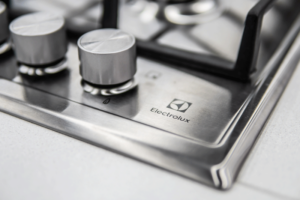 Saloniklis is already excited about the next step in the Electrolux Group’s journey to net zero emissions.
Saloniklis is already excited about the next step in the Electrolux Group’s journey to net zero emissions.
“Our final step forward at Dudley Park is our one remaining furnace that’s natural gas powered, and we are investigating replacing it with electric or hydrogen options,” he says.
One thing that Saloniklis makes clear is that the Electrolux Group’s sustainability efforts must be made through concrete, material changes, not greenwashing and PR.
“We are significantly changing our energy patterns from non-renewable to renewable energy sources,” he insists. “We have taken a massive leap forward by becoming certified zero waste. To get that classification you have to send less than 1% of your waste to landfill and we are on 0.5%.”
That journey is also reflected in the Group’s products. The company is keenly focused on new innovations and designs within its products to make them more energy efficient. It all comes down to heat.
“We are an oven manufacturing plant, so we focus on heat containment, and the ability to heat up quickly and then hold heat. We ensure that we bring that perspective into all of our componentry and manufacture designs to create the most efficient possible product,” Saloniklis says. “We look at ways to make our products more efficient and use less energy to get the required result.”
Keeping Competitive
Sustainability is a key challenge for the Electrolux Group as a whole and its Dudley Park facility in particular, but there are other challenges facing the manufacturer. From a manufacturing perspective, Australia is still a high-cost country to be doing business in.
“To overcome that challenge, we have invested in a significant program of automation, introducing lean operations and continuous improvement,” Saloniklis says. “We have introduced a raft of productivity measures to ensure we remain an efficient organisation.”
It has seen the Group’s Dudley Park facility operate at record levels, doubling its efficiency over the last eight years while becoming increasingly cost-competitive. Once again, this comes down to the quality of the products.
“A lot of that has come through product design, such as switching from using enamel doors to glass doors, and improving efficiencies,” Saloniklis explains. “We work closely with R&D to design with manufacturing in mind.”
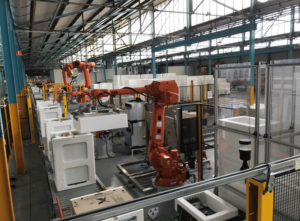 Although automation has formed a key part of the Group’s strategy, Saloniklis is keen to point out the value of the business’s people.
Although automation has formed a key part of the Group’s strategy, Saloniklis is keen to point out the value of the business’s people.
“At Dudley Park, our levels of retention reflect the kind of organisation we are,” Saloniklis says. “Our staff have an average age of 54, the average tenure is around 20 years. The people who join us tend to stick around and that says a lot about the culture that we have.”
That is a culture of investing in the factory’s people across its white- and blue-collar workforces, offering flexible working arrangements wherever possible alongside competitive remuneration.
“People are able to move throughout the organisation and succeed in new roles, and being a global company means we can offer interested employees opportunities to move if they want to pursue careers abroad,” Saloniklis tells us. “We can also offer a large diversity of careers. There are many branches to the business, so we can allow people to be where they want to be. We see a lot of people in many different roles taking advantage of those pathways.”
Together with those people, the Group will realise its vision of “Shaping living for the better.”
“Electrolux Group has been around a long time, it has a strong future,” Saloniklis says. “It has been around for 105 years and this year we celebrate 100 years in Australia and New Zealand. As a kid, I remember the first vacuum cleaner we had came from Electrolux.”
With its presence in Australia and New Zealand continuing to get stronger, Electrolux is now looking for export opportunities.
“Our exports over the last two years went from 7% to 14% as we entered the US market,” Saloniklis tells us. “We have got a target of roughly 25% export, which we think will give us a plant that’s close to full capacity, operating efficiently and maximising the asset we have here in Adelaide.”
